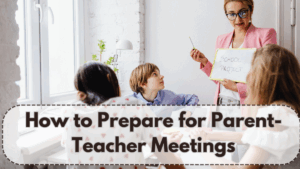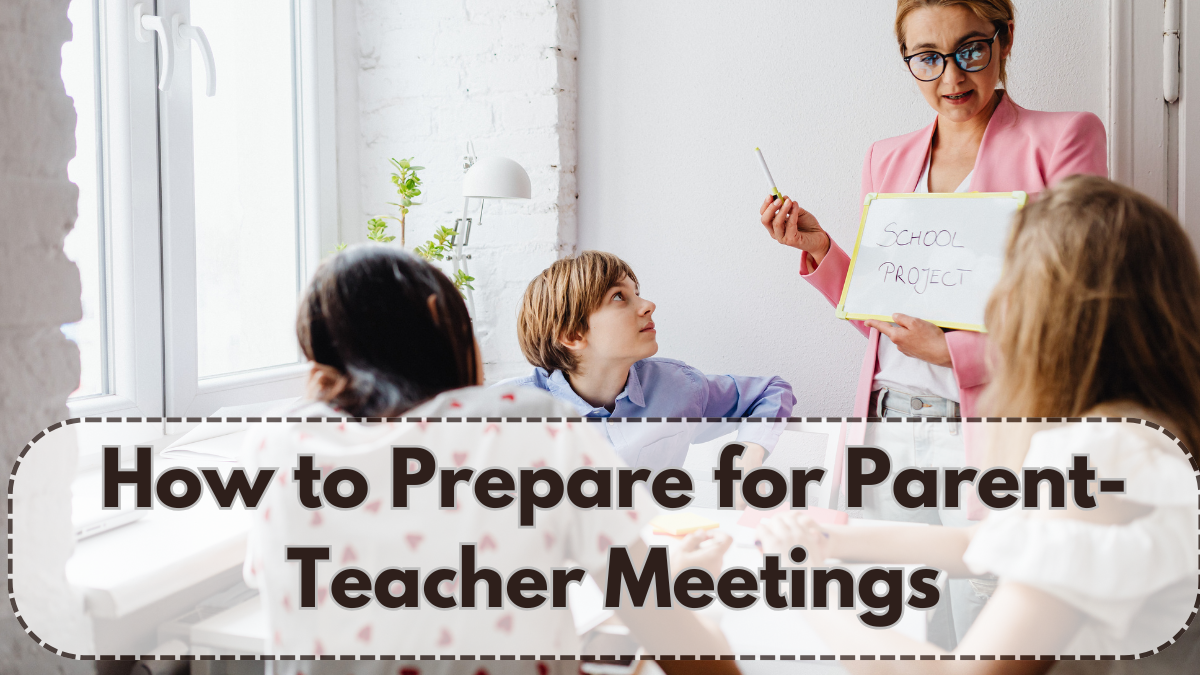Parent-teacher meetings (PTMs) are more than just formal school routines—they’re valuable opportunities for parents to understand their child’s progress, behaviour, and needs. A well-prepared parent can make the most of this time, ensuring that it’s not just a one-sided conversation but a two-way dialogue that strengthens parent engagement.
Attending a PTM without preparation can leave parents with unanswered questions and vague impressions. That’s why having a checklist helps create a focused discussion with the teacher. Whether it’s your child’s academic performance, social behaviour, or classroom habits, a planned approach shows that you care and are involved in your child’s school life.

Why Preparation for PTMs Matters
Prepared parents are more likely to get meaningful insights during the meeting. Instead of just nodding through the session, they ask the right questions and get the necessary clarity to support their child better at home. Teachers also appreciate when parents actively contribute to the conversation.
When approached with the right mindset, PTMs can:
-
Build strong parent engagement with teachers
-
Identify any learning gaps early
-
Address behavioural or emotional concerns
-
Align academic goals between school and home
Checklist to Follow Before Attending a PTM
To make your PTM experience productive, here’s a practical checklist every parent should consider:
Before the Meeting:
-
Review your child’s schoolwork, homework, or report cards.
-
Note any concerns or patterns you’ve observed at home.
-
Ask your child if they have anything they want you to discuss with their teacher.
-
Check the school’s PTM agenda or communication points.
During the Meeting:
-
Introduce yourself and stay open to the teacher’s feedback.
-
Ask specific questions about your child’s strengths and areas for improvement.
-
Inquire about participation in class, social interactions, and group activities.
-
Note down recommendations shared by the teacher.
After the Meeting:
-
Discuss feedback with your child in a positive way.
-
Set small academic or behavioural goals together.
-
Communicate any follow-up questions with the teacher via school channels.
-
Monitor progress based on points discussed during the PTM.
Important Questions to Ask at a PTM
To ensure you make the most of your time with the teacher, come prepared with questions like:
-
What are my child’s academic strengths and weaknesses?
-
How does my child interact with peers and participate in class?
-
Is there anything we can do at home to reinforce what’s being taught in school?
-
How can we support their classroom habits and discipline?
These queries can make the PTM less formal and more productive, paving the way for better parent engagement.
Table: Sample PTM Questions and Purpose
| Question | Purpose |
|---|---|
| What are my child’s strong subjects? | Understand academic potential |
| Are there any behavioural issues in class? | Address social or emotional concerns |
| How does my child handle assignments? | Improve study habits and time management |
| How can I support learning at home? | Strengthen home-school collaboration |
Having this kind of structure ensures the PTM guide is practical and focused on outcomes that benefit the student.
Turning PTMs into Opportunities
When parents and teachers work together, children benefit most. By being involved, consistent, and supportive, parents can make a big difference in their child’s academic journey. A PTM guide like this helps avoid awkward silence and gives direction to the meeting, making it easier to discuss both strengths and concerns without stress.
Building a habit of attending all scheduled meetings also shows your child that school is important. This kind of involvement contributes to better academic performance, improved confidence, and healthier school tips that last a lifetime.
FAQs
Why is it important to prepare for a PTM?
Preparation helps parents ask better questions and get clearer insights into their child’s academic and social performance.
What should I bring to a PTM?
Bring your child’s recent report card, any assignments or notes, and a list of questions or concerns to discuss with the teacher.
How do PTMs promote parent engagement?
Parent engagement grows when parents actively participate in school discussions and support their child’s learning goals collaboratively.
Can I discuss behavioural issues during PTM?
Yes, PTMs are the right platform to understand behavioural patterns and how your child interacts socially within the classroom.
How often should PTMs be attended?
Every scheduled PTM should be attended. Regular meetings build a partnership between parents and teachers, improving the child’s educational experience.
Click here to know more.
